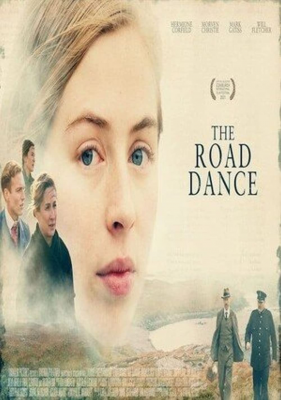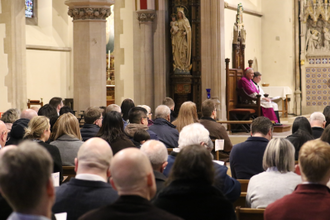Film: The Road Dance

The Road Dance is a small jewel of a film set on the Outer Hebrides on the eve of the First World War. Written and directed by Richie Adams it is based on the novel of the same name by John Mackay. The film set in 1916, which is based on a true story, tells of the tender stirring of first love between Kirstie Macleod (Hermione Corfield) and Murdo Macaulay (Will Fletcher), two of the young islanders, who fall in love just as Murdo is about to go to war. We share in their chaste and sweet courtship.
The island is beautiful but bleak and the life of the crofters hard. Kristie dreams of going to America, while Murdo reads poetry under the guise of reading the bible. The two are naturally drawn to each other. The film beautifully conveys the life of the people in their little stone cottages, planting potatoes and attending the kirk. The islanders are kind but dour, until they have a drink in them, then they can dance and enjoy themselves. But it is also drink that unleashes repressed desires for beautiful Kirstie. She is horrifically raped in the darkness by an unknown man at the dance, the night Murdo and the other young men go off to war. This brings in its wake other tragic consequences.
The rest of the film explores how Kirstie tries to cope living with such a traumatic event in a kind but narrow minded church community where you are either a virgin or a whore. The cinematography by Petra Korner is wonderful both in the shots of the stunning landscape and the dark interiors of the cottages. The intimate scenes are also very delicately done - particularly the rape sequence, which is realistic but not graphic.
The story is compelling and romantic and ultimately, despite the tragic happenings, hopeful, underlining the power of the human spirit to survive. At the opening of the film, Kirstie's father who is teaching her to swim, gives her a mantra that reoccurs throughout the film "Breathe", he tells her. She remembers this at a crucial point in the film and this helps her to survive both physically and metaphorically.
Despite their insular attitudes, and the shadow side of their Christian faith, it is also made very clear that the islanders are good if flawed people. Kirstie's father who dies at the beginning of the film is a particularly joyful person, and her mother, a good, if fearful woman, who makes her own arc of growth through the film.
The film demonstrates how a rigid Christian culture without mercy, can be destructive and lead to deceit rather than holiness. It also makes clear that the fruit of sin is always suffering and death of one kind or another. This is a message that we all need to remind ourselves of, whether we are prone to judge the behaviour of others or to think our own wrong actions can be brushed aside without consequence. The film is on release in cinemas on 20th May but if you want to see it, you need to be quick, as it is the kind that won't stay long on screen faced with spring blockbuster competition!
Watch a trailer here: www.youtube.com/watch?v=JxBS7zOezwA
















